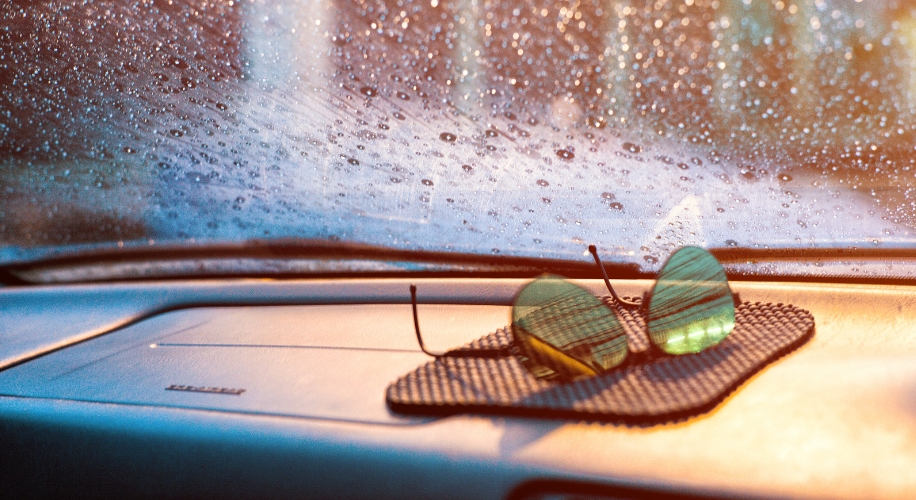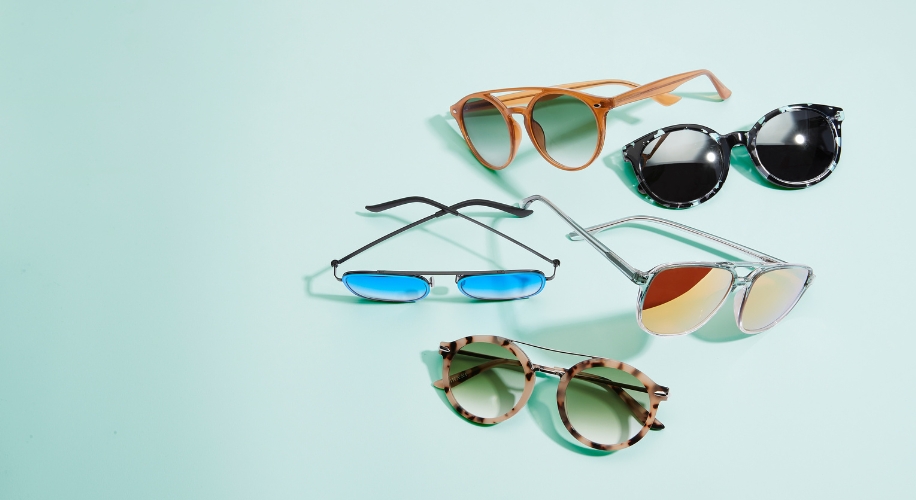Can I Leave My Glasses or Sunglasses in the Car?
When you’re on the go, convenience often takes precedence. Leaving your glasses or sunglasses in the car might seem like a harmless choice, but there are important considerations to keep in mind. In this blog, we’ll explore why it’s best to avoid leaving your eyewear in the car and how it can impact your vision and the longevity of your glasses.

Photo by Phichat Phruksarojanakun
The Impact of Temperature Extremes
One of the main reasons to avoid leaving your glasses or sunglasses in the car is the extreme temperatures that can occur inside a vehicle. Cars can experience a wide range of temperatures, from scorching heat in the summer to freezing cold in the winter. These temperature fluctuations can have detrimental effects on your eyewear.
- Heat Damage: In the summer, the interior of your car can become exceedingly hot, often reaching temperatures that can damage your eyewear. Excessive heat can cause the lens coatings to degrade, warp plastic frames, and weaken metal components. Over time, this can lead to decreased visual clarity, discomfort, and even permanent damage to your glasses or sunglasses.
- Cold Damage: In colder months, the extreme cold can make the materials in your eyewear become brittle and more prone to cracking or breaking. Cold temperatures can also affect lens coatings and adhesives, leading to potential delamination or separation of the lens from the frame.
 Lens and Frame Longevity
Lens and Frame Longevity
Leaving your eyewear in the car consistently can significantly impact their longevity. The combination of heat, cold, and UV exposure can degrade the quality of both the lenses and the frames. Here’s what you need to consider:
- Lens Integrity: The lens coatings on your glasses or sunglasses are designed to enhance vision and protect your eyes. Heat can cause these coatings to deteriorate, leading to scratches, discoloration, or loss of effectiveness. For sunglasses, UV protection is particularly critical, and prolonged exposure to intense sunlight can compromise this protective layer.
- Frame Durability: Frames made from plastic materials, such as acetate, can become warped or brittle due to temperature extremes. Metal frames can suffer from corrosion or weakening. Both scenarios can result in ill-fitting glasses or sunglasses that are uncomfortable to wear and may need premature replacement.
Maintaining Vision and Comfort
Your eyewear is essential for clear vision and eye comfort. Leaving them in a hot or cold car can affect their performance and your overall eye health. Consider these tips to ensure your eyewear remains in top condition:
- Protective Storage: Whenever possible, store your glasses or sunglasses in a protective case when not in use. This simple habit can shield your eyewear from environmental damage, accidental drops, and scratches.
- Regular Inspection: Regularly inspect your eyewear for signs of wear or damage. If you notice any issues, such as warped frames or deteriorated lens coatings, address them promptly with your optometrist or eyewear provider.
- Climate Considerations: If you must leave your eyewear in the car temporarily, try to place them in a shaded area or a compartment that is less exposed to temperature extremes. However, this should only be a temporary solution and not a regular practice.
Zenni’s Commitment to Quality
At Zenni, we understand the importance of maintaining your eyewear in optimal condition. Our lenses, including the innovative EyeQLenz technology, offer advanced protection and style to keep your vision sharp and your eyes comfortable. By following proper care practices and avoiding leaving your eyewear in extreme temperatures, you can ensure that your Zenni glasses or sunglasses continue to provide the quality and clarity you need.
While leaving your glasses or sunglasses in the car might seem convenient, the potential damage from temperature extremes and UV exposure makes it a risky choice. To protect your investment and ensure the longevity of your eyewear, always store them in a cool, dry place and use a protective case when not in use. Your eyes—and your eyewear—will thank you.





 Canada
Canada